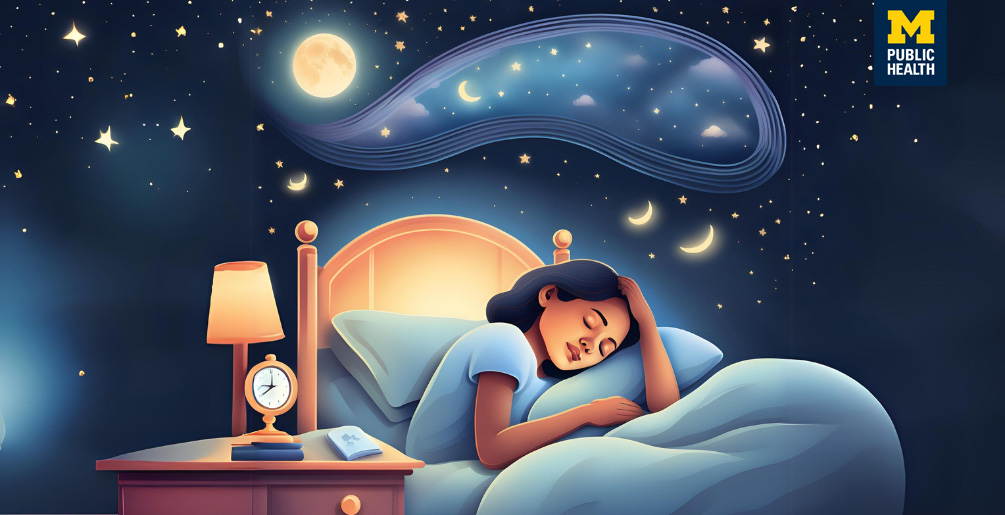Sleep Science: How Better Sleep Can Transform Your Health.

Discover how sleep impacts your physical and mental health. Explore the science of sleep, its stages, benefits, and practical tips for better rest to boost your well-being and productivity.
Sleep—Your Secret Weapon for Better Health.
We spend nearly one-third of our lives asleep, yet many people still underestimate the power of quality rest. Sleep is not just a passive activity; it’s a biological necessity. From brain function and immune health to emotional stability and metabolism, sleep plays a vital role in nearly every system of the body.”
Thanks to advances in neuroscience and physiology, sleep is no longer a mystery. The science of sleep offers insights that could radically improve our health, productivity, and quality of life.
The Science of Sleep: What Happens While You Rest?.
The Sleep Cycle
Sleep is divided into two main types:
- REM (Rapid Eye Movement) Sleep
- Non-REM Sleep (Stages 1–3)
A complete sleep cycle lasts about 90 minutes and repeats multiple times per night.
Stage Breakdown:
- Stage 1 (Light Sleep): Transition from wakefulness; muscles relax.
- Stage 2: Body temperature drops; brain activity slows.
- Stage 3 (Deep Sleep): Physical recovery, tissue growth, and immune support.
- REM Sleep: Brain activity increases; dreams occur; memory consolidation.
Why Sleep Matters: Benefits for Body and Mind.

1. Cognitive Function
- Enhances memory, learning, and problem-solving.
- Improves concentration and decision-making.
- Supports emotional regulation and mental resilience.
2. Physical Health
- Boosts immune function.
- Regulates blood pressure and cardiovascular health.
- Aids in muscle repair and hormonal balance.
3. Metabolism and Weight Control
- Lack of sleep disrupts hunger hormones like leptin and ghrelin.
- Increases risk of obesity, type 2 diabetes, and metabolic syndrome.
4. Mental Health
- Poor sleep is linked to depression, anxiety, and mood disorders.
- REM sleep helps process emotions and trauma.
Sleep Deprivation: The Hidden Health Crisis.
The CDC considers insufficient sleep a public health epidemic. Chronic sleep deprivation can lead to:
- Increased risk of stroke and heart disease.
- Impaired immunity.
- Poor memory and cognitive decline.
- Mood instability and irritability.
- Lower life expectancy.
Sleep debt accumulates over time and can be hard to “pay back.”
How Much Sleep Do You Really Need?.
Recommended Hours by Age (CDC Guidelines):
- Adults (18–64): 7–9 hours.
- Teens (13–17): 8–10 hours.
- Children (6–12): 9–12 hours.
- Older Adults (65+): 7–8 hours.
However, quality of sleep is just as important as quantity.
Common Sleep Disorders.
1. Insomnia.
Difficulty falling or staying asleep. Often linked to stress, anxiety, or poor sleep habits.
2. Sleep Apnea.
Interrupted breathing during sleep. Increases risk of heart disease and stroke.
3. Restless Leg Syndrome.
Uncomfortable urge to move the legs, often disrupting sleep.
4. Narcolepsy.
Sudden and uncontrollable sleep episodes, affecting daily function.
Tips for Better Sleep: Building a Healthy Sleep Routine.
1. Stick to a Sleep Schedule.
Go to bed and wake up at the same time daily—even on weekends.
2. Create a Sleep-Friendly Environment.
- Cool, dark, and quiet room.
- Comfortable mattress and pillows.
- Limit screen exposure before bed.
3. Watch What You Eat and Drink.
- Avoid caffeine, nicotine, and heavy meals before bedtime.
- Limit alcohol, which disrupts REM sleep.
4. Establish a Wind-Down Routine.
- Reading, meditation, or gentle stretching.
- No screen time 1–2 hours before bed.
- Warm bath or aromatherapy (like lavender).
5. Get Daylight Exposure.
Natural sunlight helps regulate circadian rhythm.
6. Be Physically Active.
Regular exercise promotes deeper sleep—but not too close to bedtime.
Technology and Sleep: Friend or Foe?.
The Downside:
- Blue light from phones and tablets suppresses melatonin.
- Social media and news scrolling increase mental stimulation.
The Upside:
- Sleep tracking apps and smart devices offer helpful data.
- White noise machines and meditation apps can aid relaxation.
Future of Sleep Science: Where Are We Headed?.
Ongoing research is exploring:
- Wearable sleep tech>
- Neuroscience of dreams.
- AI in sleep diagnostics.
- Genetics of sleep patterns.
There’s even work on “sleep banking” and customized sleep therapy based on brain activity.
Sleep Smarter, Live Better.
Sleep is not a luxury—it’s a biological foundation for health, happiness, and success. In an always-on culture, prioritizing quality sleep is one of the most powerful decisions you can make for long-term well-being.
By understanding the science behind sleep and applying proven strategies to improve it, you can sharpen your mind, protect your body, and elevate your life.




